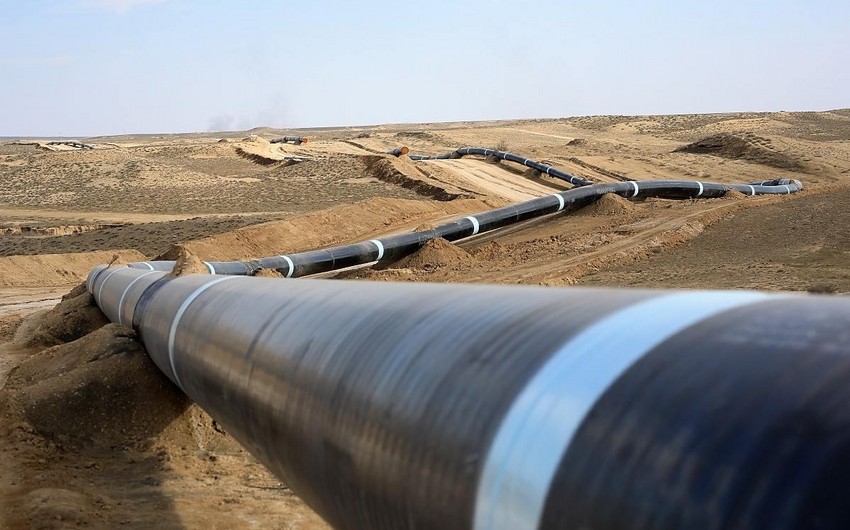Kazakhstan is expected to sell some of its crude oil through Azerbaijan's biggest oil pipeline from September, three sources familiar with the matter told Reuters, Report informs.
Kazakh oil exports account for more than 1% of world supplies, or roughly 1.4 million barrels per day (bpd).
A source with direct knowledge of the matter said Kazakhstan's state oil firm Kazmunaigaz (KMG) was in advanced discussions with the trading arm of Azerbaijan's state firm SOCAR to allow 1.5 million tonnes per year of Kazakh crude to be sold through the Azeri pipeline that delivers oil to Turkiye's Mediterranean port of Ceyhan.
The source said that the final contract is due to be signed at the end of August, with flows through the Baku-Tbilisi-Ceyhan (BTC) pipeline starting up a month later.
Another 3.5 million tons per year of Kazakh crude could start flowing in 2023 through another Azeri pipeline to Georgia's Black Sea port of Supsa, two sources said.
Combined with BTC flows, the volume would equate to just over 100,000 bpd, or 8% of the CPC flows.
The new BTC route means Kazakhstan will have to rely on a fleet of small tankers to take its oil across the Caspian Sea to Baku from its port at Aktau, which has limited spare capacity, the sources said.
Tengizchevroil (TCO), a joint venture led by oil major Chevron, has its own marketing arm and is separately negotiating its own routes by pipeline and rail, two of the sources said.
The BTC pipeline could be an option for TCO too, but a source said if agreed, it could take up to six months for flows to start.
TCO already began re-routing a small volume of oil by rail to Georgia's port of Batumi in April when storm damage made part of the CPC terminal unusable.
Two of the sources said TCO was booking more rail volumes, and they could increase in September or October.


 https://static.report.az/photo/fffe9e81-d5e7-3942-9efd-9e8785918772.jpg
https://static.report.az/photo/fffe9e81-d5e7-3942-9efd-9e8785918772.jpg

